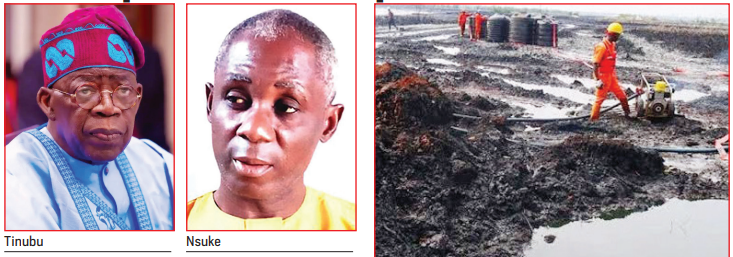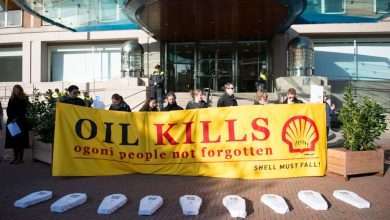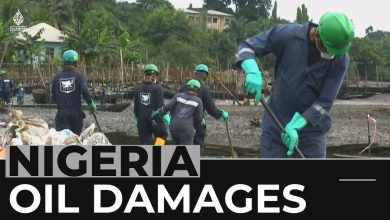
Background
Across Ogoni land there is optimism about the resumption of oil explo- ration. This is fuelled by what the people will benefit when the move materialises. Some Ogoni people strongly feel that unlike in the past when the oil in their back- yard was drilled and the proceeds taken out of the area, Ogoni should this time be direct beneficiary from its oily wealth in more than salutary manner.
The Movement for the Survival of the Ogoni People (MOSOP) has proposed an agency to oversee Ogoni development. Most Ogoni see MOSOP’s position as a worthy move. For decades, most Ogoni were unhappy over the environmental degradation, and neglect caused by policies and practices that created agitations over the utter despoliation of their land that caused wide- spread poverty in a land covered with oil wealth.
This had forced them to reject moves by the federal government to bring in new players to drill its oil. Some of the issues Ogoni had with Shell Petroleum Development Company (SPDC) are still there, but they no longer cause the kind of tension and uncertainty that prevailed in the first two decades after the federal government executed Ken Saro-Wiwa, environmental rights activist and his comrades in the struggle.
Economic rebirth
Currently, there are talks about Ogoni Economic Rebirth that centres on Ogoni oil serving as a bless- ing and not a curse. The National Youth Council of the Ogoni People (NYCOP), recently embarked on stakeholders’ campaign for oil extraction to begin in Ogoni. It wants the hurdles that have long delayed oil extraction to be removed. What appears to be a big boost for oil activities to resume is the enactment of new laws that forbids the neglect of host communities in the extraction of their resources.
The Nigerian Oil and Gas Content Development Act, 2010 (Local Content Act, 2010), and upheld by the Petroleum Industry Act, 2021 (PIA, 2021), make it clear that communities will play certain roles in oil extraction unlike in the past when they were mere onlookers and go cap in hand begging for crumbs from the oil exploration companies.
Ogoni has made progress in the last few years following the agitations for the implementation of the UNEP report, which recommended that $1 billion should be set aside as the Environmental Restoration Fund for Ogoniland or Ogoni Resto- ration Fund (ORF) to be co-funded by the federal government, NNPCL and the SPDC JV. Although the implementation of the clean-up has failed to meet the expectations of observers, the mere fact that it was implemented and that soldiers are no longer used to quell agitations, gladdens many hearts within and outside Ogoni.
The clean-up exercise
Despite the works being done by HYPREP, some see the clean-up exercise as a big joke; a performance that falls short of the standards expected from an agency that ought to deliver massively. They accuse HYPREP of using contractors and so-called experts who have no history with environmental clean-up to execute projects. Also, there have been complaints over the inflation of contracts sums, and the complete neglect of some of the key areas that need inter- vention.
One of such areas is the provision of potable drinking water. In some Ogoni communities, water from wells and streams are coloured and with oil stains. MOSOP President, Fegalo Nsuke has consistently expressed disappointment with HYPREP, accusing it of worsening the health conditions of the Ogoni people by wanting to launch community borehole water projects from toxic, poisoned and contaminated wells. Nsuke disclosed: “HYPREP alone sees and grades itself on the cleanup. We, the people, have not seen the water nor have we seen the cleanup.
HYPREP, UNEP pact
“In 2014, HYPREP and UNEP called for a total ban on both surface and underground waters in Ogoni after declaring them unsafe for drinking. Now, HYPREP has not even cleaned the surface pollution not to talk about the underground pollution but they are seeking to drill boreholes from the same contaminated sources after receiving at least $800 million cleanup funds.
“I challenge HYPREP today to produce its plans for the integrated water project if the agency is committed to provide clean water for the people. Let them show us their plan for the water project. What HYPREP is doing in Ogoni is ridiculous and extremely shameful.” One of the disturbing findings of the investigative groups on the UNEP’s Environmental Assessment of Ogoniland stated that:
“Some areas, which appear unaffected at the surface, are in reality severely contaminated underground and action to protect human health and reduce the risks to affected communities should occur without delay. “In at least 10 Ogoni communities where drinking water is contaminated with high levels of hydrocarbons, public health is seriously threatened. “In one community, at Nisisioken Ogale, in western Ogoniland, families are drinking water from wells that is contaminated with benzene-a known carcinogen-at levels over 900 times above World Health Organisation guidelines. The site is close to a Nigerian Na- tional Petroleum Company pipeline.”
Effect of corruption
The challenges faced by residents of Ogoni communities is the same thing being faced by people in other oil-bearing communities in the Niger Delta region. It is clear that this problem didn’t suddenly land from the sky, but one caused by the corruption that runs deep within the oil industry. In 1998, the Human Rights Watch (HRW), observed that:
“Grievances with the oil companies center on the appropriation or unremunerated use of community or family resources, health problems or damage to fishing, hunting or cultivation attributed to oil spills or gas flares, and other operations leading to a loss of livelihood; as well as on oil company failure to employ sufficient local people in their operations or to generate benefits for local communities from the profits that they make.
“These cases have come to the attention of Human Rights Watch when companies are shielded by abusive security forces against demands for compensation and against independent verification and arbitration that could fairly establish the merits of opposing claims.” In 2023, more than two decades after the position of HRW, another reputable organisation, Transparency International and its chapters in the Netherlands and the US, called on; “the authorities in the two countries to reopen investigations into Eni and Shell for alleged bribe-paying in Nigeria.
“The two oil multinationals are alleged to have paid over $1billion in bribes to members of former President Goodluck Jonathan’s administration for rights to the OPL245 offshore oilfield, in a case widely recognised as seriously detrimental to the people of Nigeria. Along these lines, both the US and the Netherlands had previously opened investigations into the deal, but closed them due to a court case in Italy.
Eni’s acquittal
“Yet in 2021 and 2022, Italian authorities acquitted both Eni and Shell, shocking the international community. Unfortunately, this is part of a pattern in Italy, with both the OECD Working Group on Bribery and Transparency International’s own Exporting Corruption 2022 report finding the country to be limited in its enforcement against foreign bribery.” The current trend among International oil companies is assets divestment, which simply means the sale of their assets.
There is a consensus among Civil Society organisations (CSOs) that by divesting their assets, the IOCs are fleeing the Niger Delta region to avoid being held accountable for their sins. There are countless judgements against some of the IOCs in suits instituted by host communities across the Niger Delta region that would make the $1 billion Ogoni clean-up fund a child’s play. The Ogoni clean-up funds is also funded by the IOCs which are in joint venture partnership with the Nigerian National Petroleum Corporation Limited (NNPCL).
Although, the IOCs have the right to do business wherever they deem conducive, some have argued that had UNEP not come out with its report on Ogoni, and its implementation not carried out, the IOCs would not be pulling out in a hurry. Is stakeholders Democracy, a coalition of Civil Society Organisations in the Niger Delta region, which frowns at the idea of divestments said in a statement thus: “International oil companies are selling their onshore assets to move offshore, or out of Nigeria altogether.
The rate of divestment is accelerating, and there are widespread concerns that the federal government is not doing enough to ensure companies address their toxic legacies, and the challenges will worsen as a result. CSOs call on the Nigerian government to adopt and implement principles that will ensure a responsible exit of international oil companies. “International Oil Companies (IOCs) are divesting from onshore assets in the Niger Delta at an accelerated rate, without adequately addressing the enduring legacies of environmental pollution, social strife, and governance challenges resulting from their operations spanning the past six decades.”
Please by Nigerians
In 2023, when the Archbishop of Sokoto Diocese, Rev. Father Dr. Matthew Hassan Kukah presented his book: Witness to Reconciliation: My Personal Journey Towards Reconciliation in Ogoni, in Port Harcourt, Kukah, who was the presidential facilitator on the Ogoni issue, appealed for forgiveness and healing. That was equally the plea of former President Olusegun Obasanjo, who was the guest of honour.
Obasanjo also expressed sadness that the Ogoni issue had not been resolved despite setting up the Oputa Panel. Ogoni land is healing and would want to forge a new direction. MOSOP said that the federal government should also aid the healing by allowing Ogoni to play a role in future oil dealings. The future appears bright; whether or not there is divestment of assets in the area. The people strongly feel that the Ogoni. Development (ODF) has come to stay, and that it will be used to lift them up.
MOSOP President, Nsuke continues to promote the ODA wherever he goes. “It is therefore in the best interest of our country and economy to accept and encourage the initiatives of MOSOP to resolve the Ogoni problem through the operations of the Ogoni Development Authority. ‘‘Ogoni Development Authority is an Ogoni initiative through MOSOP to address the Ogoni problem through the people’s participation in the development process” he added.
It is Nsuke consistency in articulating the development needs of the Ogoni alongside MOSOP Kingdom coordinators in the grassroots that has won support for ODF. But he has paid a huge price for his uprightness and no nonsense approach to negotiation. He has refused to mellow on the demands and has prevented oil companies from entering Ogoni land through the backdoor. Nsuke disclosed that Ogoni oil resources is in billions of dollars.




